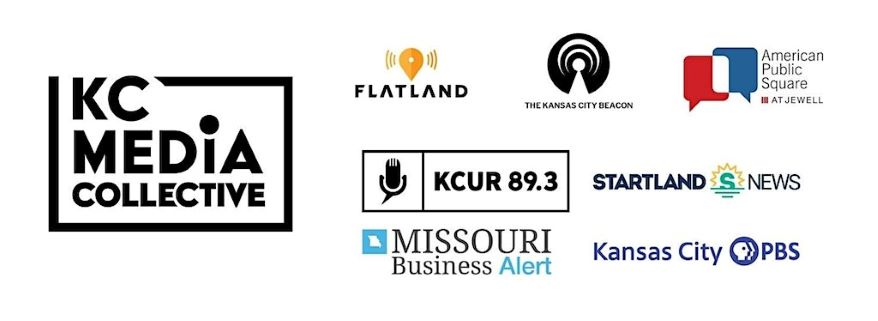Newspapers in Rural Areas are Folding, Leaving Vast News Deserts The U.S. has lost more than 2,800 newspapers since 2005, many of them in rural areas. Now some journalists are redoubling their efforts to provide local news and trying new models in a difficult industry.
Published April 15th, 2024 at 1:29 PM
Above image credit: News editor and co-publisher Will Brumleve sits at his desk at the Ford County Chronicle in front of awards and text from the First Amendment. He and co-founder Andrew Rosten launched the newspaper in Paxton, Illinois, in 2020, one of the few new papers in the U.S. in recent years. (Jim Meadows | Harvest Public Media)First Street in downtown Mount Vernon, Iowa, has the quintessential “Main Street” feel. It’s got a café , bank – and the local newspaper office.
The Mount Vernon-Lisbon Sun is nestled among the two-story red, brick buildings, the words “Sun” and “Newspaper” painted in fancy lettering on its windows.
The weekly serves the two small eastern Iowa towns, and on this day the newspaper’s one full-time reporter and editor, Nathan Countryman, is busy.
“I’m finishing up the calendar, finishing up the special section … and I’ve got two stragglers I’ve gotta track down, which is always fun,” he said.
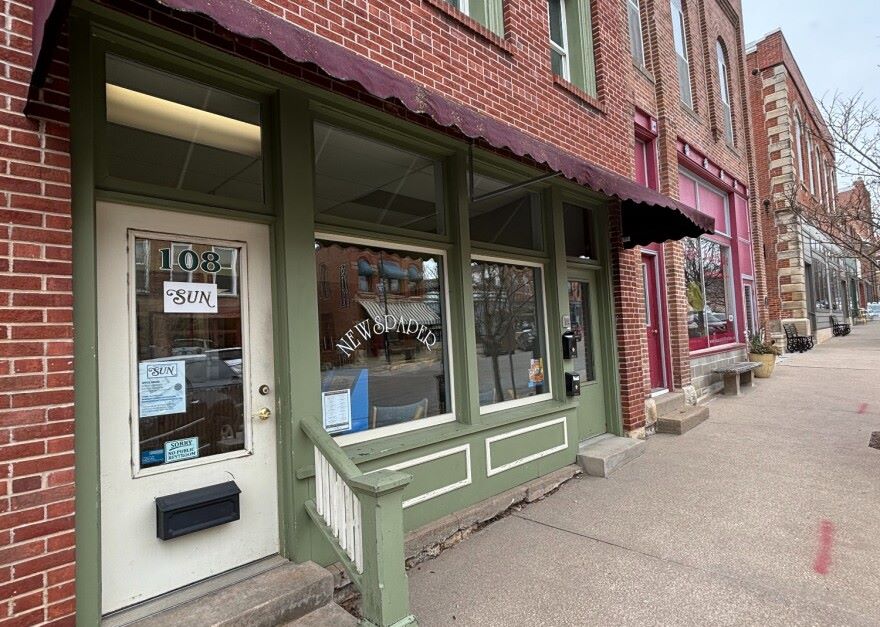
The front page of a recent issue included three articles with Countryman’s byline; stories on Lisbon’s city tax levy rate, employee insurance benefits in the Mount Vernon school district and the town’s annual Easter Egg Dash.
A local newspaper was once a mainstay of nearly every American town. But today, according to the Local News Initiative based at Northwestern’s Medill School of Journalism, nearly half of all counties in the U.S. have only one newspaper, while more than 200 counties have none at all – making them news deserts.
So far The Sun has escaped the fate of so many rural newspapers.
In February, in a unique move, the University of Iowa’s student newspaper bought The Sun from the papers’ owner, Woodward Communications, along with another local weekly.
The Daily Iowan, with a reporting staff of about 90 students, is owned by a non-profit and independent of the university. Some of its reporters, along with students from the university’s School of Journalism, will now contribute articles to The Sun and the Solon Economist.
Countryman said it’s a relief to know now he’ll have help from student journalists.
“It’s a lot more breathing room,” he said. “It’s an ability to have a Monday where I can say, I just need somebody else to cover the city council meeting.”
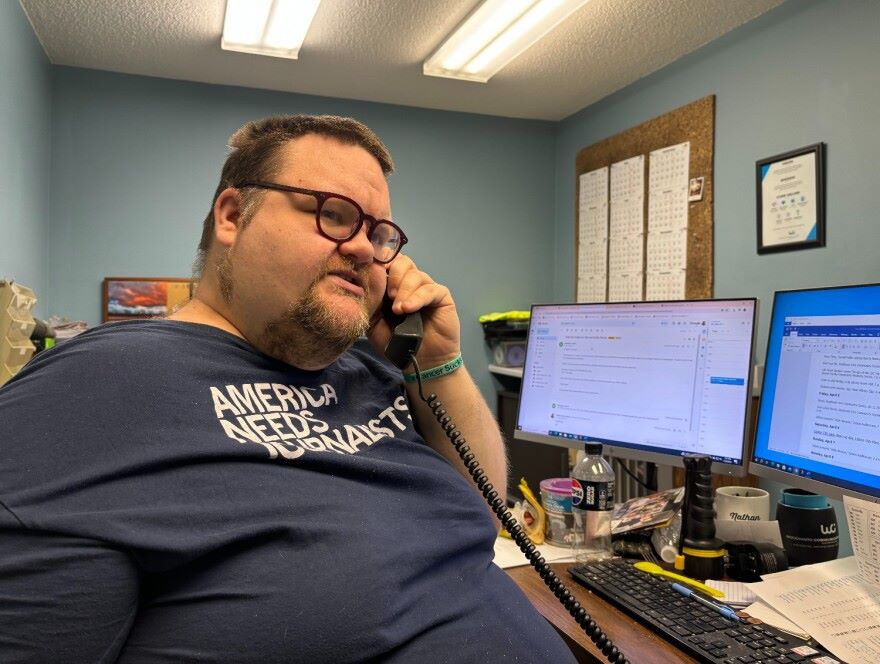
The Scale of Rural Newspaper Decline
Since 2005, the U.S. has lost about a third of its newspapers, according to Medill’s Local News Initiative. Its annual report said those losses increased slightly in 2023, with 131 newspapers shuttering. Now there are about 6,000 newspapers left in the U.S., and of those, only about 1,200 dailies.
Director Tim Franklin said the overwhelming majority of counties with no newspapers – referred to as news deserts – are in rural areas. Iowa, Minnesota and the Dakotas have lost more newspapers per capita than any other states over the last two decades. Franklin said newspapers are especially scarce in the Midwest and South.
“You can almost draw a straight line from the Texas-Mexico border from, say, Brownsville Texas, up through the spot, what I call the spine of the country,” said Franklin. “And with some exceptions, almost all the counties are either news deserts or one news outlet counties.”
As rural areas have lost more population in recent decades, the stress on newspapers has gotten worse.
“In rural areas, the problem is one of scale,” he said. “Are there enough paying customers in a smaller rural community to be able to support journalism in that area? That is where I think the economic equation becomes more challenging.”
It’s a challenging landscape for many media outlets, according to Benjy Hamm, director of the University of Kentucky’s Institute for Rural Journalism and Community Issues. He cited layoffs at cable TV networks such as ESPN and online publications including BuzzFeed.
But, he noted, layoffs and closures in community newspapers are especially devastating.
“When the local newspaper cuts from a news staff of four to two, or in some cases goes out of business, that really impacts a local community,” he said.
While advertising in newspapers has declined sharply, Hamm said public interest remains strong in newspapers. He said now more newspapers are looking for new business models to replace the longtime ad-based one.
That could include switching to a non-profit tax status, seeking laws to approve tax credits or incentives for newspaper subscribers or advertisers.
But in the meantime, Hamm expects things to get worse before they improve in the newspaper industry.
“There will be more newspapers that go out of business.There will be more online sites that determine they can't make a profit,” he said. “But I think there will continue to be things that emerge to replace that.”
A Commitment to Community
The Ford County Chronicle in rural Paxton, Illinois, is something of an anomaly. It’s one of the few new newspapers to replace a defunct paper in the U.S. in recent years.
The Chronicle was founded in 2020 by two former employees of the Ford County Record, a much older weekly that was going through staff cuts under the ownership of the Community Media Group chain.
Founders Will Brumleve and Andrew Rosten find working at their own newspaper a totally different experience. They now have to worry about printing, distribution and ad sales duties, as well as covering the news.
“It’s hard, but every job’s hard, right?” said Brumleve. “There’s not that many jobs that make you feel better about the difference you can make in other people’s lives and just try to keep people informed of things they need to know. It’s important.”
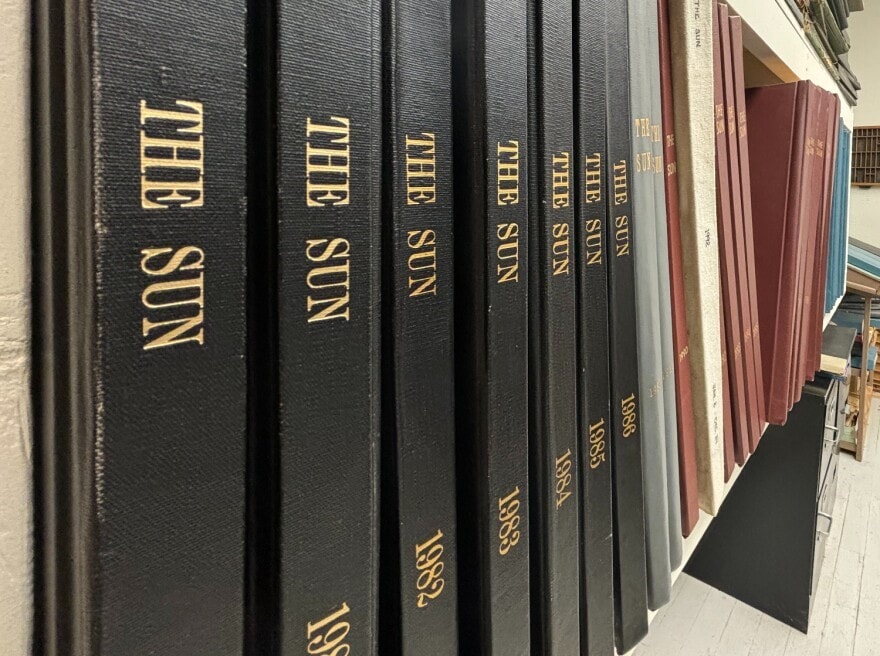
That devotion to local news is at the center of publisher John Starkey’s plans for a regional newspaper in Texas.
He runs the Rambler, a weekly newspaper serving Irving and other suburbs in the Dallas-Fort Worth area. Last year he turned the media company into a non-profit and acquired a newspaper 300 miles away in rural Crockett County — The Ozona Stockman.
Next year he hopes to launch The Stockman, which will expand coverage to seven counties in west Texas. In three of the counties there are no newspapers and little access to news.
“They have spotty internet. They have spotty radio reception. And they have restricted TV because of the geographic parameters of the area,” Starkey said. “So if they don't have a newspaper, they don't have news. It's that simple.”
With no news coverage, he said residents aren’t able to learn and reflect on the events around them, and there’s little scrutiny of business or government decisions.
He hopes as more newspapers turn to philanthropic support, they can get out of what he calls the industry’s “vicious cycle” of fewer advertising dollars leading to less coverage and declining subscriptions.
“What you have to do, is you have to change the model,” he said.
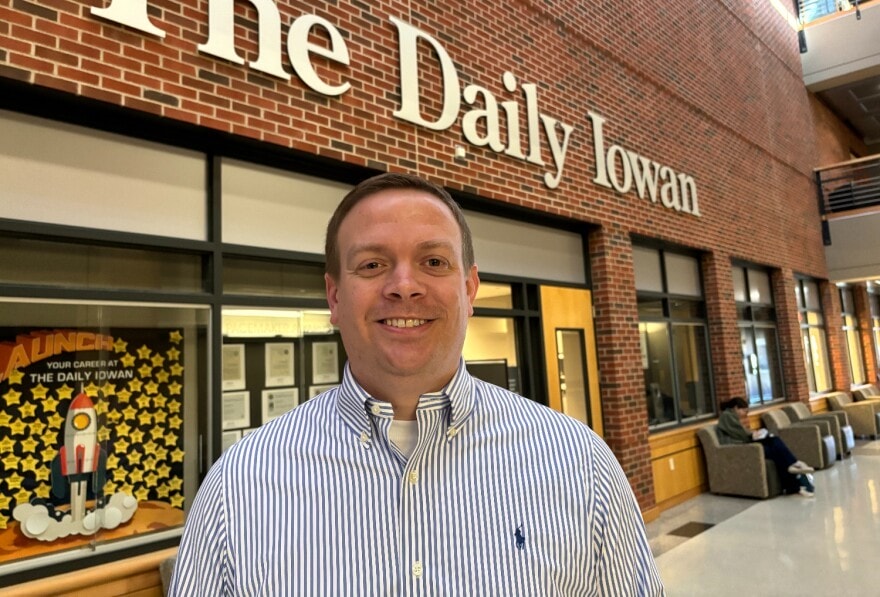
The Daily Iowan’s purchase of The Sun and Solon Economist has grabbed headlines and interest from other university papers, according to DI Publisher Jason Brummond.
“I’ve heard from a dozen of my counterparts around the country, who are really excited to see the news that we were acquiring these papers,” he said. “They’re interested to hear how it turns out in the next six months and twelve months.”
Now the local newspapers will be able to maintain their current professional staff and get an injection of student reporting.
“Ultimately, we think that community journalism is important,” Brummond said. “We think that these communities deserve a strong newspaper, and we thought we could deliver that.”
Jim Meadows reports for Harvest Public Media at Illinois Public Media. This story was produced in partnership with Harvest Public Media, a collaboration of public media newsrooms in the Midwest that includes KCUR, a member of the KC Media Collective.
